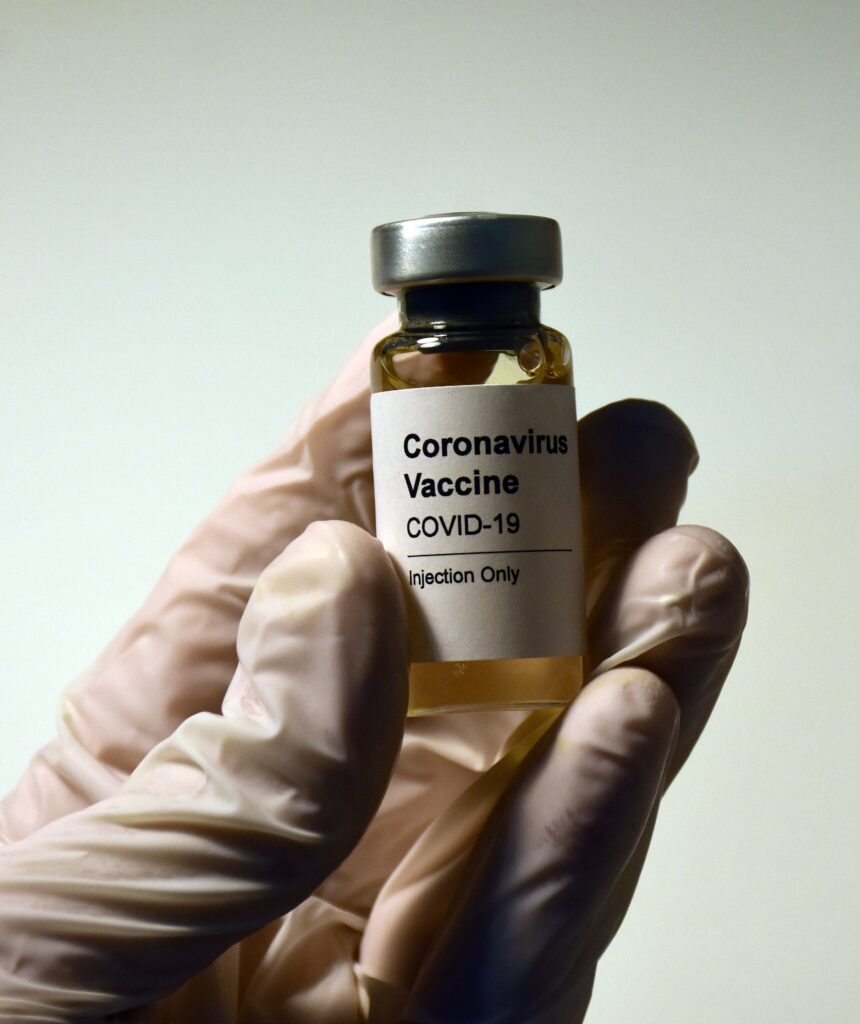Students debate COVID-19 vaccine’s efficacy, long-term impacts

As COVID-19 vaccines become more accessible to the public, students are evaluating their options regarding the various vaccines and whether or not to get vaccinated.
There are currently three vaccines in Phase III clinical trials, two approved vaccines available on the market and approximately 5.9 million people have received both vaccine doses nationwide as of Feb. 1, according to the Centers for Disease Control and Prevention (CDC).
With more incoming vaccines, plans for increased rates of distribution from the Biden administration and even some experts saying that students could be vaccinated by summer 2021, choosing what route to take is just around the corner.
For some students, taking the vaccine is a social responsibility and a way to keep loved ones protected against the virus.
Sam Sklar, a fourth-year student majoring in psychology, volunteers at St. Joseph’s Hospital on a weekly basis. He said he’s taking the vaccine to protect his girlfriend and mother from contracting the virus, both of whom are immunocompromised.
“I don’t want my work at the hospital or anything else to hurt the people I love. … While I will still wear a mask because the vaccine is only 90-95% effective, I will sleep easier knowing that I’m vaccinated,” said Sklar.
Although some are confident on the effectiveness of the vaccines, others are still unsure about the accuracy of the results as well as the long-term effects.
Kaitlyn Woolard, a senior majoring in psychology, is among those students. She said she’s still not confident in getting the vaccine due to the unknown side effects that might develop over the years.
“I understand that a vaccine is necessary, and I am not against vaccines, I’ve gotten all necessary vaccines in the past,” she said. “I just think it’s not safe for me to take it right now considering we still have so much to learn about the virus in general, like long-term side effects and such, so it seems very rushed that they already made a vaccine for it.
“Once you take the vaccine, it’s in your body, you can’t undo it, so I would rather wait and see how other people react before I think about getting it, because the media and doctors and such can say things, however we won’t get the actual information we need until people start taking it and sharing how it affected them, if it did.”
The newness of the vaccine is a root of concern for some, but in the medical field, the vaccine’s technology has been recognized as revolutionary.
Both Moderna’s and Pfizer-BioNTech’s vaccines are built on similar mRNA technology. Michael Teng, associate professor of internal medicine at USF Health, said the mechanisms of the mRNA technology behind the vaccines are not only effective, but one of a kind in the medical field.
“The mRNA vaccines are really unlike any other vaccines we ever get, these are completely novel platforms,” Teng said. “The new vaccines really [are] just a little piece of RNA that encodes one of the proteins of the coronavirus called ‘spike,’ which is on the outside of the virus and that is what we want to make antibodies.”
Although both company’s vaccines share a similar design, time may be too short to tell which one is the safest option, associate professor at the USF College of Public Health Jill Roberts said.
“Right now everything that we know is that they are both highly efficacious … they both are really safe,” said Roberts.
Each vaccine possesses high reported rates of efficacy, with Pfizer-BioNTech having a 95% efficacy rate and Moderna having a 94.1% efficacy rate, according to the CDC.
However, as more people get vaccinated, health and safety information for the Moderna and Pfizer-BioNTech vaccines could evolve and differences between the two may become more apparent, Roberts said.
“Now, over time, we might get a little bit more data saying, ‘Well, this one’s been linked to more of those cases of allergic responses than this one has,’ in which case, maybe we have to look at that and say, ‘OK, well, if you’re prone to allergies, you may want this vaccine versus that vaccine,’” Roberts said. “But right now, they’re considered … pretty much the same.”
Due to concerns over allergies, third-year elementary education student Patricia Salem decided to do an allergy test before getting the vaccine. After experiencing allergic reactions to some medicines during her childhood, Salem said she wants to be up to date on her allergies to clear out any concerns.
“The last thing I want to risk is getting this vaccine and having an allergic reaction to it or experiencing severe side effects,” said Salem. “Therefore, I would like to get an allergy test and discuss with my doctor if this vaccine is the right choice for me before I get it.”
At first, Salem said she was skeptical about receiving the vaccine due to its quick turnout. However, after doing some research, she became more confident with its effectiveness.
“When the pandemic became rampant, however, a significantly larger amount of funding was given for the development of this vaccine,” said Salem. “While I understand why people might say that it was produced too quickly, it may not have been produced as quickly as we thought it was. For this reason, I don’t doubt that this is a great vaccine that will effectively put this pandemic to an end.”
Roberts also attributed the timely engineering of the COVID-19 vaccine, a common concern of those hesitant to take it, to an abundance of funding and resources provided by the federal government rather than a cutting of corners in safety standards.
“Did we skirt safety? Absolutely not,” Roberts said. “These vaccines had to meet the safety quality and efficacy guidelines of every single other vaccine available on the market.”
Misinformation regarding the vaccine, however, might be a factor fueling people’s distrust in the vaccine, recent USF graduate Anxhelo Mara said. Mara, who graduated in December with psychology and health science degrees, said he understands the skepticism of some individuals, but trusts that the vaccines will have fewer negative effects in the future than the virus.
“Although the extreme long-term effects are generally unknown, we know more about the vaccine’s mechanism than we do about the coronavirus and its own long-term issues,” he said.
“I’d rather take my chances with a well-researched and vetted treatment over a novel virus that irreparably scars lung tissue and makes young people live with hypoxia.”
The Food and Drug Administration (FDA) deemed specific safety and efficacy guidelines for the purposes of emergency use of the COVID-19 vaccinations, including providing reports on information like manufacturing processes, vaccine contents and how the vaccine will be stored once distributed.
But not all people trust in the processes that the vaccine has undergone. Sarah Gondek, a master’s student majoring in accountancy, said she will wait until herd immunity is achieved rather than taking the vaccine.
“The vaccine was developed super quickly,” Gondek said. “Since it’s so new, it is physically impossible to see the long-term effects this vaccine will have on humans say, five years or even one year from now. I’m not high risk and honestly, if I was going to get it, I should’ve gotten COVID by now but I haven’t.
“I’m not anti-vaccine in general, but I am in the case of this supposed ‘miracle’ COVID vaccine … I think I’ll take my chances not getting the vaccine.”
Traditionally, vaccine development takes around 10 to 15 years, according to the College of Physicians of Philadelphia — a drastic difference between the approximate eight-month time period of development for the Moderna and Pfizer-BioNTech vaccine, according to the U.S. Department of Health and Human Services. Roberts emphasized the pace with which the COVID-19 vaccines were engineered.
“After this coronavirus was identified, we got all of the genetics of it,” Roberts said. “We did genome sequencing, and we looked at the entire virus, every single nucleotide that it had. To go from that, to an actual vaccine only took one week … I mean, we never had tech this fast in our entire lives.”
While the vaccine provides immunity against COVID-19, Roberts said the vaccine might not prevent people from carrying and spreading the virus.
“You can be a carrier without actually suffering from the disease, and vaccines can cause that to happen,” Roberts said. “And so what we need to do is we need to keep people with their social distance and their masks need to stay on, because even though they were vaccinated, they could still be carrying the coronavirus.
“Over time, we’ll have more data, we’ll know whether or not this is true or whether or not this is likely. But right now, we don’t know for sure, so you still have to be able to protect other individuals.”
Until more research and information is available, Roberts emphasized that caution is extremely necessary, and social distancing guidelines and mask compliance is essential until most of the population is vaccinated.
“The more people who actually are vaccinated, the less likely we are to actually have to continue having this conversation,” she said. “Because even if I was a carrier, if you’re vaccinated, I can’t give it to you. So this is again an illustration of how that herd immunity thing works.”
Additional reporting by Jorgelina Manna-Rea and Leda Alvim







